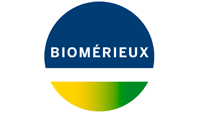Automated ID/AST Systems - Same Day, Accurate Results
VITEK® MS | Identification in Minutes
Proper identification of Streptococci is critical in managing infections. VITEK MS uses Matrix Assisted Laser Desorption Ionization Time-of-Flight (MALDI-TOF) technology to deliver fast and actionable identification for better treatment and patient outcomes. VITEK MS contains a comprehensive FDA 510(k) cleared database with more than 400 clinically significant organisms, including Streptococci, accounting for diversity among strains and leading to robust and accurate performance.
VITEK® 2 | Resistance Detection with VITEK 2 and ADVANCED EXPERT SYSTEM™
Enhance your stewardship program with same-day susceptibilities. VITEK 2 provides automated and standardized ID/AST results you can trust. The system includes an ADVANCED EXPERT SYSTEM (AES) software that analyzes MIC patterns and detects the presence of resistance mechanisms.
The emergence of resistant bacteria is a natural phenomenon that is exacerbated and accelerated by the inappropriate use of antibiotics. VITEK 2 ID/AST panels provide reliable and accurate results for clinically significant bacteria including Streptococci to help guide and manage therapy. Ensuring that patients get the right antimicrobial, the right dose, at the right time is at the heart of antimicrobial stewardship best practices.
Complementary ID/AST | Flexible and Reliable Solutions
CHROMID® Strepto B | Universal Group B Streptococcus Screening
Group B Streptococcus (GBS) is a leading cause of infection in newborns that can lead to life-threatening conditions such as neonatal sepsis, meningitis, and pneumonia. Studies show that universal screening during labor can help reduce the risk of transmission.2
CHROMID Strepto B agar is a selective chromogenic medium intended to aid in the qualitative determi-nation of Group B Streptococcus in pregnant women. It is the only pre-poured agar FDA-cleared for the detection of both ß-hemolytic and non-ß-hemolytic Group B Streptococci (REF 419751 - 20 plates).
API® | Accurately Differentiate Between Strep Species
Species-level identification of Strep species is essential for early diagnosis and treatment. API is a well-established method for microorganism identification to the species level. API 20 Strep (REF 20600) offers 4- or 24-hour identification of Streptococci and Enterococci and accurately identifies Strep species to help infection control and prevention measures.
ETEST® | MIC Determination: Guide and Manage Therapy
Keeping pace with antimicrobial resistance while ensuring top quality and performance is challenging. ETEST provides a flexible diagnostic solution to test newer drugs, detect emerging resistance, and help clinicians guide and manage therapy. With more than 90 antimicrobial agents, ETEST complements the VITEK 2 and meets susceptibility testing requirements to help provide timely, appropriate therapy.
REFERENCES






